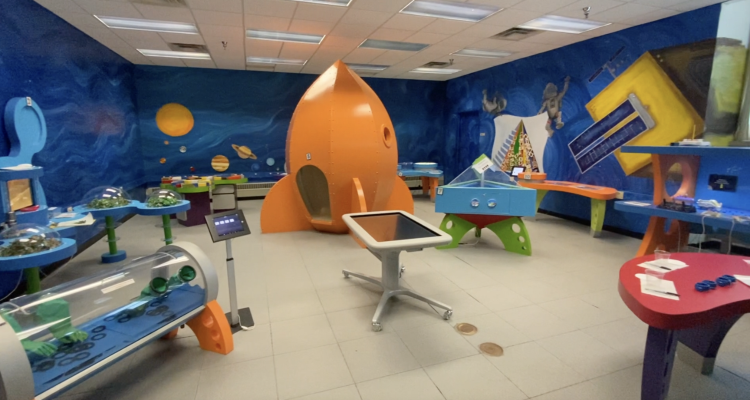The Challenger Learning Center at Wheeling University: Inspiring the Next Generation of Space Explorers
In 1985, Christa McAuliffe, a social studies teacher from Connecticut, was selected for NASA’s Teacher in Space program, a mission designed to bring education to space. As the first teacher ever chosen to fly aboard a spacecraft, McAuliffe was slated to conduct science experiments and share the excitement of space exploration with students across the world. Tragically, her life and the lives of seven other crew members were lost during the Challenger disaster in 1986. The event sent shockwaves through the scientific and educational communities, deeply affecting people worldwide.
In the wake of this tragedy, the families of the Challenger crew sought to honor their loved ones by creating a lasting legacy—an educational program designed to inspire children to pursue science, particularly in the realm of space exploration. Their vision led to the creation of the Challenger Learning Centers, and today, more than 40 of these centers operate across the United States. Wheeling University is proud to host one of these innovative centers, where students from around the globe come to experience the wonders of space, right here on Earth.
A Mission for Education
Jackie Shia, Director of the Challenger Learning Center at Wheeling University, has been part of the program since 1996. “We work with schools from the tri-state area, bringing middle and high school students to our Center for hands-on space missions, as well as younger students to our Micronaut Center,” says Shia. At the Center, students assume roles as space mission flight controllers or astronauts aboard a simulated space station. The experience is designed to spark curiosity, teamwork, and critical thinking, all while immersing students in the excitement of space exploration.
The Center has seen significant updates, thanks to a recent $3 million grant from NASA. “The new Challenger Mission Control is modeled after the mission control used by the Blue Origin space team,” Shia explains. “We’ve also added a transport room to help students feel like they’re really on their way to the spacecraft.” The grant has also allowed the Center to expand its programming, including the addition of a new distance learning mission, Observation Earth. This mission joins a suite of more than 28 e-missions created by the Wheeling Challenger Center.
Reaching Students Far and Wide
The e-missions are collaborative, problem-based learning scenarios that allow students to work together to solve challenges and complete space missions. Since the first e-missions were developed in 1996, the Challenger Center at Wheeling University has reached classrooms in every U.S. state and 23 countries worldwide. “It’s so exciting that our center has the opportunity to inspire students not only locally but across the country and around the globe,” says Shia.
In addition to their virtual reach, the Wheeling Challenger Center has gone into juvenile correctional facilities across West Virginia to offer unique STEM opportunities to students in those communities. These outreach programs help to bring science and space exploration to a broader audience, fostering curiosity and encouraging students to dream big about their futures in science and technology.
Supporting Educators, Too
When not leading future astronauts on missions or developing new programming, the Challenger Learning Center also focuses on teacher professional development. Recently, Shia and her team presented at the West Virginia Science Teacher Association Conference, sharing innovative strategies for teaching space science. “There’s so much excitement surrounding space right now,” Shia says. “It’s not just NASA anymore—private companies like Blue Origin are making space travel a reality. We’re closer than ever to returning to the Moon and reaching Mars. Scientists, astronauts, engineers, and so many others are working every day to make these dreams come true.”
Looking Ahead
The Challenger Learning Center at Wheeling University is helping to fuel the next generation of space explorers, innovators, and thinkers. The Center provides exciting opportunities for both students and teachers, from hands-on missions to professional development programs.
“It’s an honor to be part of a legacy that inspires so many young people,” says Shia.
The Center offers summer camps, virtual access to space through e-missions, and training for teachers interested in bringing space education to their classrooms. For more information on upcoming programs and events, be sure to check out the Challenger Learning Center’s website.
Thank you to the Challenger Learning Center for continuing to inspire the next generation of explorers!



